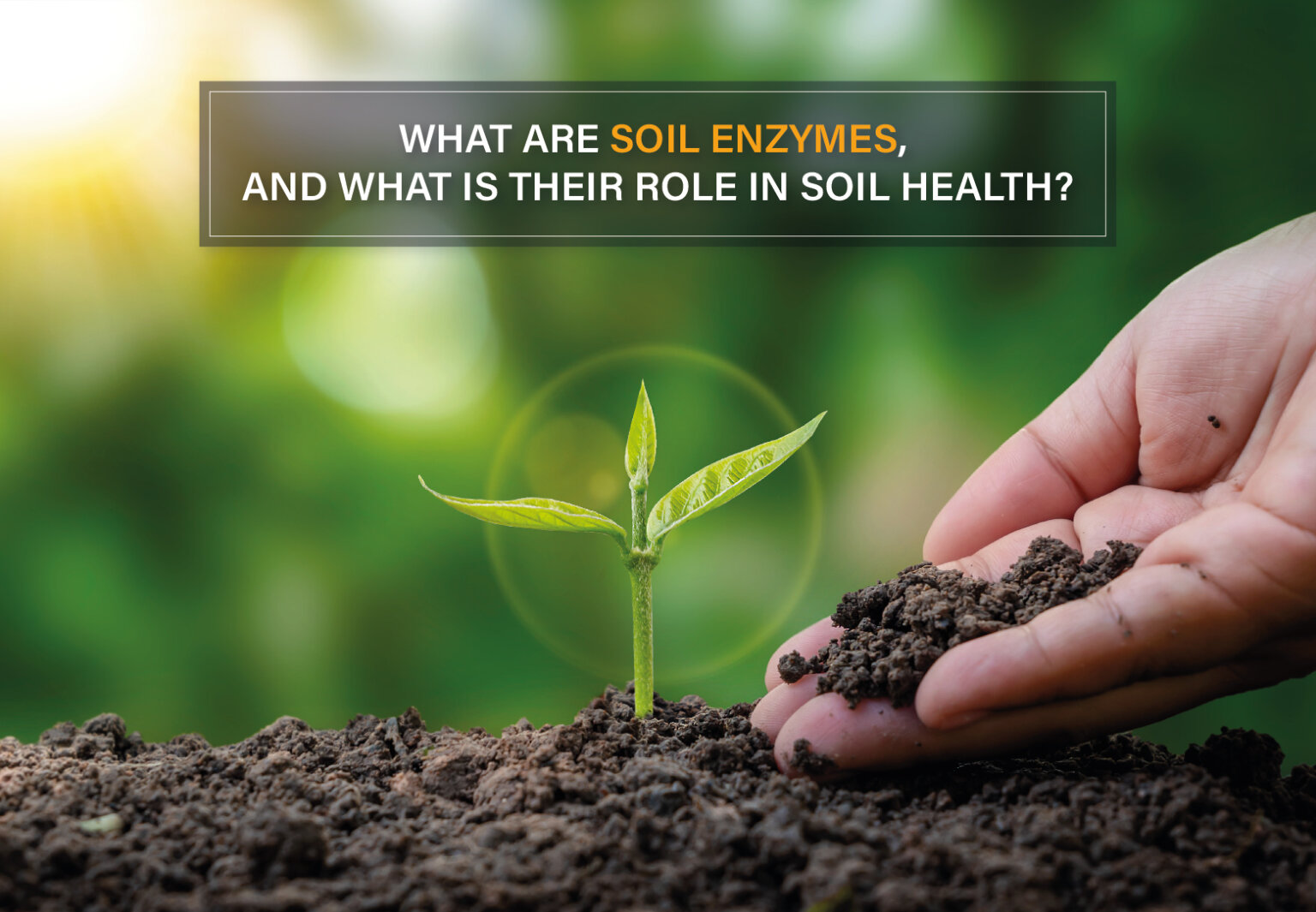What Are Soil Enzymes, And What Is Their Role In Soil Health?


Have you ever listened to or read about soil enzymes? And their role in soil’s health? Let’s dive into this unusual topic! Here we will see in more detail what are soil enzymes and their usage.
So here we begin!!!
A wide variety of microorganisms, including bacteria, fungi, and other living forms, can be found in soil, which is a complicated and dynamic ecosystem. We don’t need to explain the importance of soil because we all know it very well. These microorganisms are important for maintaining healthy soil, which is necessary for strong plant growth and environmentally friendly agricultural methods. This ecosystem would not exist without the part that soil enzymes play in maintaining the health of the soil.
First of all, let’s explore the meaning of soil enzymes to gain a better understanding of this topic.
Table of Contents
ToggleWhat Are Soil Enzymes?
The biological catalysts known as soil enzymes help break down soil organic matter into nutrients that plants can receive. Enzymes are in charge of dissolving intricate organic substances like proteins, carbs, and lipids into simpler molecules like amino acids, sugars, and fatty acids that plants can utilise for cellular growth and development. Microorganisms produce enzymes, which are usually found in large quantities in soils with active microbial populations.
Now that you have a clear understanding of what soil enzymes are, let’s delve further and explore their role in soil health.
What Part Do Soil Enzymes Play In The Health Of The Earth?
By enabling the breakdown of organic matter into nutrients that plants can use for growth and development, soil enzymes play a crucial role in preserving soil health. By dissolving the organic substances that hold soil particles together, they aid in maintaining the structure of the soil and improve water infiltration and aeration. Additionally, by liberating nutrients like nitrogen and phosphate from organic matter and making them accessible for plant uptake, soil enzymes support the regulation of nutrient cycling in soil.
Proteases, amylases, lipases, cellulases, and phosphatases are a few of the diverse types of soil enzymes. These are soil enzyme examples. Each kind of enzyme is in charge of dissolving a particular kind of organic substance. For instance, proteases, lipases, and cellulases all break down various types of lipids, proteins, and cellulose. These various enzymes’ presence in soil suggests a thriving and varied microbial population.
Enzyme activity and quantity in the soil are additional signs of healthy soil. For instance, low enzyme activity or abundance may be a sign of nutrient-poor soil or a dearth of microbial activity. On the other hand, a diverse microbial population and healthy, nutrient-rich soil can be indicated by high enzyme activity or abundance.
There Are Several Applications Of Soil Enzymes, Including:
Evaluation of soil fertility and health: Soil enzyme tests are frequently used to do this. Specific enzyme activity can reveal details about microbial activity, nutrient cycling, and soil organic matter recycling.
Agriculture: Nutrient cycling, which is important for crop growth and yield, depends on soil enzymes. Enzyme supplements can help increase nutrient availability and promote plant development in agriculture.
Bioremediation: By dissolving organic pollutants and transforming them into harmless molecules, soil enzymes can be used to remediate contaminated soils.
Enzymes are essential for composting because they speed up the decomposition of organic waste and aid in its breakdown.
Overall, thriving soil ecosystems depend on soil enzymes, which also have a wide range of useful uses in waste management, bioremediation, and agriculture.
Since we are discussing soil enzymes and their role and application, let’s also explore the agricultural industry and the details of agriculture enzymes. Agricultural enzymes are those that boost agricultural processes and increase crop yields. These enzymes, which have a variety of farming uses, can come from plant, microbial, or animal sources.
Soil remediation is one of the most popular applications for farming enzymes. Utilizing enzymes like cellulases, hemicellulases, and ligninases, plant material is broken down in the soil to increase plant nutrient availability and enhance soil structure. This highlights the importance of soil nutrients for the overall health of plants.
In summary, soil enzymes play a critical role in the health of the soil by assisting in the conversion of organic matter into nutrients that plants can use to grow and develop. They are essential for preserving soil structure and controlling the movement of nutrients in the soil. We can better manage and sustain our agricultural systems and ensure long-term wellness. and productivity of our soils by understanding the function of soil enzymes in soil health. If you are looking for high-quality enzymes for agriculture, don’t hesitate to reach out to Ultreze Enzymes. As a manufacturer, supplier, and exporter of top-notch soil enzymes and other enzymes, we are dedicated to meeting the demands of the industry. Contact us now to get the best prices!

